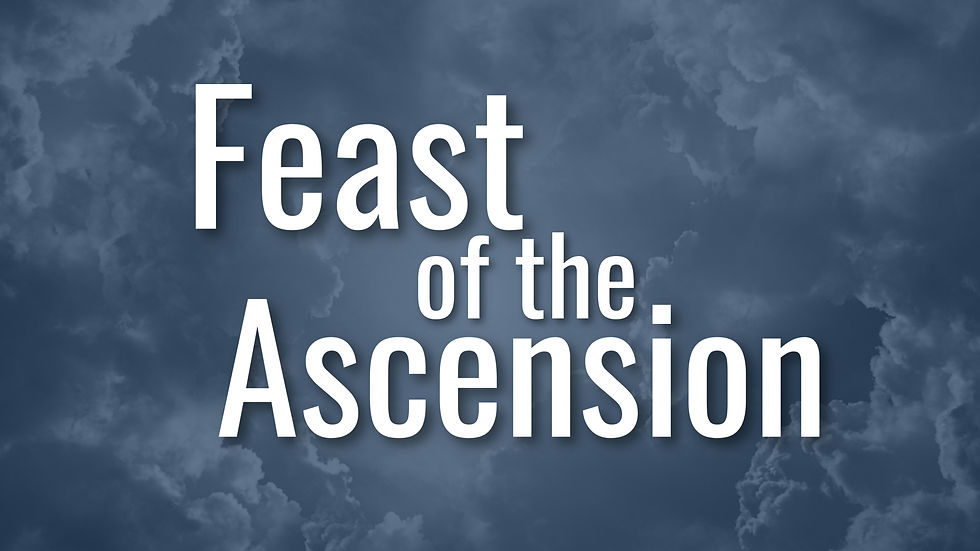Entering Sacred Space and Time - The Eucharist
- Kelly St Mary
- May 15, 2019
- 2 min read

We believe in sacred space, be that Moses and the burning bush; the place of Jacob’s dream; the location of the crucifixion of Jesus; or the “worship space” of our Sunday morning gatherings. Sacred space does not mean God is more present in one place than in another. It means that God is revealing something specific to His Church in that place.
We believe in sacred time, that there are God-appointed moments when God promises to reveal and Grace us with His presence. God has always entered into human time, breaking into our day, to bless us, appoint us to ministry, and grace us with the power to do what we have been appointed to do.
A part of our heritage and identity is that we are a Eucharistic Community.
Every Sunday and Wednesday we gather to give thanks (that is what “eucharist” means) to God for our redemption and life in Christ. We gather in celebration and in pain, with our hopes and fears brought before God.
The Church has always gathered around the Altar to share in the Eucharistic meal, to renew our covenant relationship with God and one another through the Sacramental presence of Jesus in the consecrated bread and wine.
The Church has celebrated the Holy Eucharist in times of joy and pain, in the face of death and new life. The Church has kept communion during times of war and times of peace. We have kept faithful to the sacred meal in homes and church facilities, in hospitals and on mission trips. It has been celebrated with great ceremony and with no formality at all. But the Church has been faithful to keeping the celebration and reception alive.
This active participation in the Holy Eucharist is one of the Christian disciplines essential to our life in Christ. We do not see this as an optional practice, but as an obligation to God and each other. This meal was established by Jesus himself. If Jesus wants his disciples to do this, there must be some very good spiritual reason for the regular reception of the Blessed bread and wine. (alt: If Jesus wants his disciples to do this, there must be some very good spiritual reason for us to do this, too.)
As we look at our life together and the future of our faithfulness, I want to say that, in many ways, all that God asks of us begins at our Eucharistic Table. We are not to neglect or deny ourselves the grace of the Sacrament or the joy of celebrating the Life in Christ we share.
Sacred time and sacred space are united in our Sunday gathering. We unite in one place for one purpose: to celebrate the Resurrection of Christ and our union with God through that sacrifice.
Think on this: God’s sacred people gather at a time made sacred, in a space made sacred, for an encounter with God through Word and Sacrament.




Comments